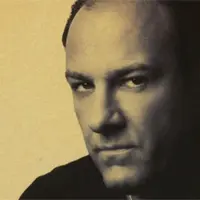2020 was the year of binging unlikely TV shows, thanks to the pandemic
-

"In 2020, tackling 121 episodes of a single show was no longer as daunting as it once seemed," says Hannah Giorgis, noting that many people in lockdown turned to past TV series for escapism. "Whether it was The Sopranos or Survivor or Dexter, any show with a giant back catalog offered both distraction and the concrete promise of achievement, despite not being the most edifying quarantine project," says Giorgis. "Shows that once seemed prohibitively long, or intimidating because of their robust fandoms or towering critical stature, didn’t seem so inaccessible anymore. Settling on a show that ran for seven full seasons (or 40) eased decision fatigue and guaranteed at least a few weeks of blissful simplicity—if in no other arena than our TV watching. Publications noticed that certain time-consuming series drew renewed attention, sometimes breaking down how long different programs would take to binge-watch (Grey’s Anatomy: 343 hours) or analyzing a show’s unique quarantine appeal...Binge-watching is hardly a pandemic-specific pastime, but TV has become sacrosanct under quarantine. Streaming numbers have soared as people everywhere rely on the medium for escapism, and some audiences have apparently become more willing to commit to full series. Many viewers are discovering the sensory comforts and expansive universes of shows such as The Great British Bake Off or Barefoot Contessa." Giorgis adds: "Character-driven shows about crime soon became my balm for the unrelenting sameness of daily life. These worlds follow a consistent storytelling logic. The plot changes as time moves along, and time—unlike in real life—always moves along. At various points this year, I might not have been able to immediately recall the date, but I always knew what case the Miami Metro Police Department was working, and how close Dexter was to being discovered. Despite my discomfort with the propagandistic theater of most police shows, I appreciated the routine pleasure of watching Dexter (played by a brilliantly lupine Michael C. Hall) solve crimes by making sense of the mess in front of him. And like HBO’s Barry, Dexter pushed the edges of my squeamishness, challenging my ability to keep watching onscreen violence instead of immediately turning away or looking through my fingers."
ALSO:
- 2020 was the year TV finally figured out technology: "We've had plagues before," says Proma Khosla. "We've had calls for social justice and government reform. We've had elections, overthrown tyrants. But we've never had it all at once, with a population of over seven billion and endless news and communication at our fingertips. TV and movies have no choice now but to incorporate technology and social media into characters' lives and worlds, but even decades into the 21st-century this can sometimes feel forced, stilted, or inauthentic. You get a sense that the people making these stories aren't necessarily engaging with whatever device or platform they've written into it, which can alienate the viewer or create something entirely unbelievable. But 2020 has made it impossible, or at least unacceptable, to go back to that life. This was the year everyone in the entertainment industry took meetings over Zoom, that director dads did Tiktoks. Phones and internet (or tablets, TVs, what have you) were our lifeline to the outside world, for instant updates on case numbers, local safety guidelines, must-try recipes, and how our friends and family were doing. That's as true for you and I as for the people creating and producing our entertainment, and it's starting to show."
- From Tiger King to The Queen's Gambit: Here are the 15 TV shows that belong in a time capsule for this very strange year
- Gillian Anderson, Maya Rudolph, Michaela Coel, Sarah Cooper and Cate Blanchett had some of the greatest TV performances of 2020
- The 30 most shocking TV moments of 2020: From Eminem at the Oscars to Jimmy Kimmel and Jennifer Aniston nearly burning down the Emmys
- 12 dumb things TV did in 2020: From all the un-renewals to all the socially distanced series
- 2020 was the year Drew Barrymore blew up The Daytime Talkshow Machine
- The best animated shows of 2020 include Big Mouth, Steven Universe Future, Harley Quinn and She-Ra and the Princesses of Power
- The Great, Perry Mason and Devs had some of the best TV scores of 2020
- Here are the best TV episodes of 2020: Better Call Saul's "Bagman," I May Destroy You's "Ego Death" and Mythic Quest: Raven’s Banquet's "Quarantine"
- More great 2020 episodes: The Good Place's "Whenever You're Ready," The Plot Against America's "Part 6" and Normal People's "Episode 10"
- 2020's worst TV: From Emily in Paris to Space Force to The Stand
- The 10 best SNL sketches of 2020 include "Airport Sushi" and "Del Taco Shoot"
- 48 showrunners reveal the shows that got them through 2020: David Benioff consumed PEN15, Courtney Kemp binged on Murder, She Wrote and Lena Waithe calls I May Destroy You "a therapy session I never knew I needed."
- Here are the 58 most anticipated TV shows of 2021: From Lord of the Rings to the Gossip Girl reboot
TOPICS: The Sopranos, Dexter, I May Destroy You, The Queen's Gambit, Saturday Night Live, Tiger King: Murder, Mayhem and Madness, Binge Watching, Coronavirus
More The Sopranos on Primetimer:- Who is Ernest Wesley Heinz? Sopranos actor arrested over road rage shooting
- How is Jerry Adler related to Stella Adler? Sopranos star's family connection to famed acting teacher explained as he passes away
- How many children did Jerry Adler have? All about the family as Soprano actor’s grandson pays tribute
- What happened to Charley Scalies? The Sopranos actor's reason for death is explored
